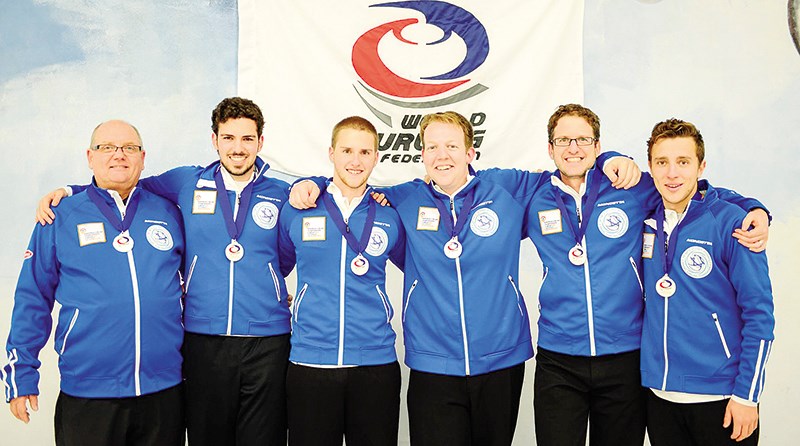Barry Wright
If you think of global powers in men's curling Israel doesn’t immediately spring to mind. But Jeff Lutz is out to change that.
The 30-year-old member of the Israeli national men's curling team has been honing his skills this season at the Sarnia Golf and Curling Club.
The Detroit resident has learned the sport the past 15 years at the Roseland Curling Club in Windsor, but cited improved competition and ice conditions for the decision to make the three-hour round trip commute each week from the Motor City to play in a Sarnia mixed league.
Lutz contacted the director of the Israel Curling Federation to begin the process of getting the sport back on ice in his homeland.
“It's been quite a whirlwind ride since then,” he said.
As a result of a training camp in Minnesota in June, Lutz and Israeli teammates from Toronto, Montreal and Virginia were chosen to represent their country at the European Curling Championships.
They won seven straight games, including playoff victories over higher-ranked teams from Slovakia and Ireland to capture silver medals at the “C” group championships in the Netherlands in October. They also qualified for the “B” group championships in Switzerland last month.
Lutz and his teammates finished 3-4 there and didn't qualify for the playoffs, but their 11th place finish translated into an eight-position jump in world ranking to number 37 overall, and allows them to compete at the “B” group tournament next year in Denmark.
With a break or two along the way, Lutz says Team Israel could find itself competing in the European “A” event against powerhouses like Sweden and Norway in the not-to-distant future.
“The difference between teams in the “B” group and the mid-levels teams in the “A” group is minimal,” he said.
Having a full year to train and work on their game in 2015 will also be a big advantage, Lutz said.
“Now, we know what it takes to get ready and properly get our games in order.”
While Lutz and his mates want to play at the highest level in Europe, they also have an eye on competing at the Olympics, in either 2018 or 2022.
“All we have to do is to play in a world championship between now and 2017 and I think that's doable,” he said.
“There's no doubt that it's there for the taking.”
